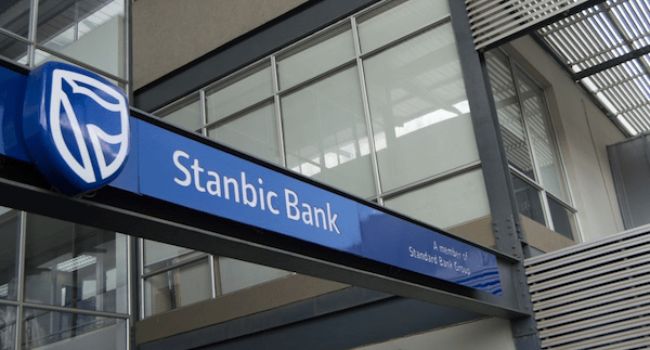Business
Stanbic IBTC’s report shows how naira scarcity affects private sector in Nigeria

The Stanbic IBTC has revealed how the scarcity of naira notes arising from the currency redesign by the Central Bank of Nigeria (CBN) crippled activities in the country’s private sector in the last few weeks.
In its new Purchasing Managers’ Index (PMI) report for February and sent to Ripples Nigeria on Sunday, the Stanbic IBTC said the scarcity of naira notes reduced the purchasing power of customers and hampered activities in the sector.
The lender added that customers were unable to access funds, forcing companies to scale down operations which in turn led to job cuts.
The CBN had in October last year announced the redesign of the N200, N500 and N1,000 notes.
The apex bank also announced January 31 as the deadline for the withdrawal of the old naira notes from circulation.
The report read: “A severe impact was noticed in the private sector midway through the first quarter of the year. Substantial declines were seen in both output and new orders, while firms scaled back their purchasing activity and employment.”
The PMI used the 50 percent benchmark to rate business environment or condition.
In January, the headline PMI was 53.5 percent but this dropped to 44.7 percent in February, indicating the business condition in Nigeria deteriorated sharply in the month.
“The decline in operating conditions was the sharpest since the survey began in January 2014, excluding the opening wave of the COVID-19 pandemic in the second quarter of 2020.
“The most severe impacts of cash shortages were seen with regards to output and new orders, which both fell substantially as customers were often unable to secure the funds to commit to spending.
“ The decline in new orders was the first since June 2020, while the fall in output ended a seven- month sequence of growth. In both cases, the reductions were the most pronounced in the survey’s history, apart from during the opening wave of the COVID-19 pandemic.
READ ALSO: Naira scarcity planned in 2022, designed to foist interim govt on Nigeria – El-Rufai
“With new orders and output falling, companies reduced their input buying and staffing levels accordingly. The declines were the first in 32 and 25 months respectively. The decrease in purchasing reflected not only a drop in customer demand but also difficulties for companies to find the funds to pay for items,” it added.
The business environment was severely impacted due to twin shocks; the Naira shortage and the scarcity of fuel, which also influenced the price of goods or aided inflation.
The fuel scarcity resulted in price pressures and led to supplier delivery delays, compounding the problem of companies that are already struggling with a shortage of cash to fund their operations.
“Alongside cash shortages, the private sector was also impacted by a scarcity of fuel in February. This had a notable impact on suppliers’ delivery times, which lengthened for the first time in close to six-and-a-half years and to the greatest extent since April 2016,” the report concluded.
Speaking on the impact, the Head of Equity Research for West Africa at Stanbic IBTC Bank, Muyiwa Oni, said: “This quarter the lingering cash shortages will likely continue to dampen economic activities and could depress economic growth.
“Furthermore, persistent fuel shortages from the beginning of the year saw petrol pump prices increase, which both increased production cost for firms and led to supplier delivery delays.
“Sure, the lingering cash shortages will likely continue to dampen economic activities and could depress economic growth in Q1:23.”
Join the conversation
Support Ripples Nigeria, hold up solutions journalism
Balanced, fearless journalism driven by data comes at huge financial costs.
As a media platform, we hold leadership accountable and will not trade the right to press freedom and free speech for a piece of cake.
If you like what we do, and are ready to uphold solutions journalism, kindly donate to the Ripples Nigeria cause.
Your support would help to ensure that citizens and institutions continue to have free access to credible and reliable information for societal development.






















